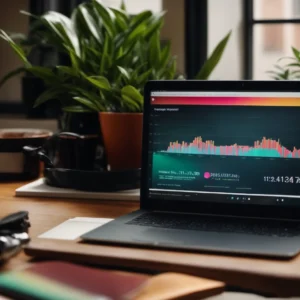Many people suffer from stomach and gut-related conditions. These disorders, also known as gastric disorders, include constipation, irritable bowel syndrome, hemorrhoids, anal fissures, perianal abscesses, colitis, colon polyps, and cancer. These gut-related ailments are examples of functional gastrointestinal disorders. Functional disorders are the ones where the gastrointestinal (GI) tract looks normal but isn’t working properly. These are the most common problems that affect the GI tract (including the colon and rectum).
Examples of factors which can lead to having such conditions include eating a low fiber diet, not exercising enough, traveling or other changes in routine, eating large amounts of dairy products, stress, resisting the urge to have a bowel movement, taking antacid medicines that contain calcium or aluminum, taking certain medicines (like antidepressants, iron pills, and strong pain medicines such as narcotics) and pregnancy.
Gastrointestinal disorders affect approximately 25 million Americans. In many cases, 50-80% of people with functional gastrointestinal disorders don’t reach out to a physician for help and wind up taking over the counter medications. Unfortunately, sufferers of these ailments report more job absenteeism and disability than those who don’t suffer from such symptoms.
Common Gut Complications
Two of the most common forms of these gut-related illnesses include constipation and irritable bowel syndrome (IBS). Constipation means a person is having a difficult time having a bowel movement. At times these bowel movements are infrequent (less than three times a week) or incomplete. As mentioned before, constipation is usually caused by an inadequate amount of fiber in the diet, also followed by a disruption of the regular routine or diet.
One way of tackling constipation is through the use of CBD (cannabinoid) related products, derived from the CBD flower. These come in many forms, from CBD oil to tinctures and topical creams and edibles. CBD can help to relieve constipation by focusing on what causes the condition. To help the pain associated with constipation, CBD provides anti-inflammatory and pain-relieving properties. Scientists have also found that CBD is an immune modulator and a potent anti-inflammatory agent. CBD has the potential to help treat a variety of digestive related complaints, including constipation.
Cannabinoid products have a minuscule THC content, which means that they don’t create any of the psychoactive effects commonly associate with the hemp plant. All you get is pain relief and other health benefits. CBD is legal in nearly every state and has been shown to have excellent effects on those suffering from chronic pain and other disorders.
Relax Your Stomach
In addition to this, stress has been known to factor into constipation. CBD products derived from the cannabis flower, such as CBD oil, tinctures, joints, and gummies are helpful in dealing with stress by promoting resilience to stress, and also by decreasing anxiety. Combating stress with CBD properties is a simple, and sometimes effective means of tackling constipation.
IBS affects the large intestine. Signs and symptoms to look out for include cramping, abdominal pain, bloating, gas, and diarrhea or constipation, or both. IBS is, unfortunately, a chronic condition that needs to be managed for the long term. Some people affected by IBS can control their symptoms by managing diet, lifestyle, and stress. More-severe symptoms can be treated with medication and counseling.
Rates of IBS in the United States
Estimates show that 10-15% of the adult population in the United States suffers from IBS symptoms, but only 5-7% of adults have been diagnosed with the disease.
CBD can be used to help treat IBS. People have reported that cannabis and CBD oil (including full-spectrum and hemp-derived elements) have helped to relieve their IBS symptoms. As of today, CBD’s full impact is still undergoing studies, though it appears that CBD can be used to increase a person’s ECS (Endocannabinoid System) natural levels. ECS can then be used to help a person’s stomach ailments. CBD is perfectly safe, especially if you source it from small farms and reliable manufacturers. It’s definitely worth trying a few gummies or some drops of CBD oil to see if the stress relief and boosted Endocannabinoid system will result in relief from your IBS.







